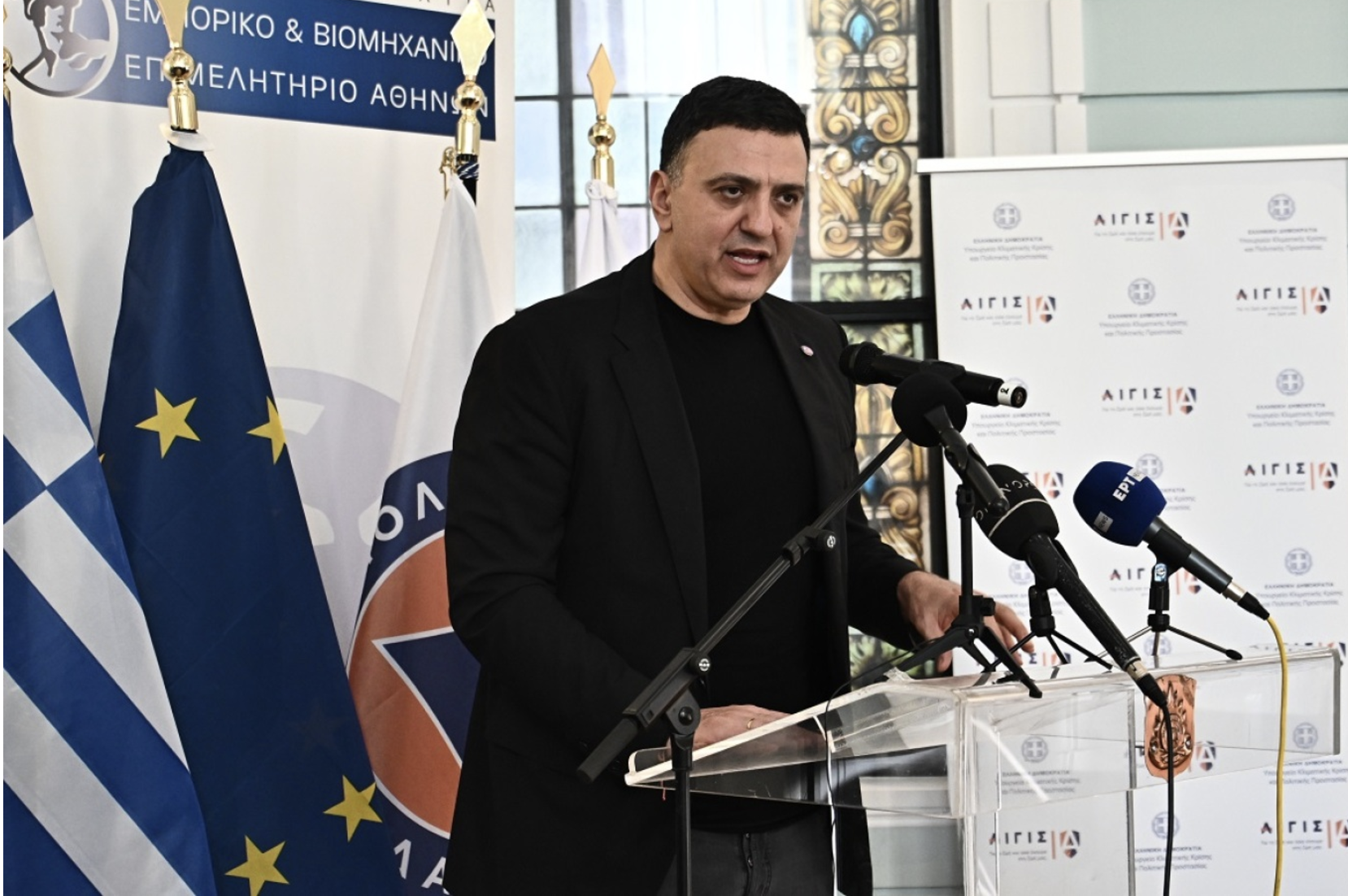The Minister of Climate Crisis and Civil Protection, Vassilis Kikilias, signed today a contract for the upgrade of the emergency number “112” (a project worth €17.5 million), as part of the implementation of the AEGIS program.
This involves a state-of-the-art Next Generation Emergency Call Management System (112), which will provide enhanced services (e.g., advanced geolocation, video calls, silent button, etc.), elevating Greece to a high-security category for its citizens, as noted in the announcement by the Ministry of Climate Crisis and Civil Protection.
The Minister stated that 112 is an extremely useful tool in the arsenal of Civil Protection. He added that with its upgrade and the integration of new technologies, both operational capacity and obligations are enhanced.
“Five years ago, through the personal intervention of Prime Minister Kyriakos Mitsotakis, the hardware and software of 112—technology from 2014—were activated. For reasons that are not pertinent to discuss now, this tool had never been activated. A tool designed for emergencies, a European tool, was incorporated into the arsenal of Civil Protection, providing timely warnings to our fellow citizens, protecting and saving lives. I am pleased that within a single calendar year, and as part of the AEGIS program, we are implementing the upgrade of this tool into a new era. It will operate on the cloud, provide services for people with disabilities (PWD), feature a silent button for emergencies or hostage situations, and be interoperable, connecting the Fire Department and Civil Protection with the Police, Coast Guard, and Armed Forces,” said Mr. Kikilias.
He emphasized that the upgraded 112 will also offer increased compatibility with new technologies and enable interactivity between citizens and services, as well as between services themselves, using both closed and open-source data to address emergency incidents. “We are very satisfied that the AEGIS program continues to be implemented at this pace,” he concluded, thanking the Information Society for its cooperation, as project after project is delivered.
Specifically, through the Next Generation 112 project, the following are being upgraded:
- The capability for multi-channel communication with all citizens in emergency situations.
- The cooperation of Unit 5 of the National Coordination Center for Emergency Operations (ESKEDIK) with Emergency Response Agencies across the country.
- The communication environment, tailored to the needs of people with disabilities.
Moreover, the software will support:
- Open/standard communication protocols and full two-way integration with existing and future incident management systems of emergency services, in line with current best practices.
- The creation of new systems for immediate integration with other agencies (e.g., Hellenic Police, EKAB ambulance service, Coast Guard) for coordinated incident management. The proposed system will fully support existing functionality while ensuring new/enhanced capabilities, such as geolocation services in line with the specifications of major mobile operating system manufacturers, functionalities via mobile terminals (smartphones and tablets), communication in cases where mobile network coverage is unavailable but wireless networks are accessible, and silent incident reporting (Silent Button) for emergencies (e.g., hostage situations). It will also provide protection guidelines even when the user is out of network coverage.
Fire Department Chief Lieutenant General Theodoros Vayas highlighted the operational benefits of the 112 upgrade. He stated that the upgrade improves communication between citizens and 112, while also enhancing operational efficiency by ensuring the most comprehensive information possible to mobilize resources effectively, always for the benefit of citizens.
Stavros Asthenidis, CEO of the Information Society, emphasized that everything possible will be done to ensure the project is completed on time and with quality, so it can be delivered to the Fire Department and Civil Protection. He noted that the upgrade will place 112 in a new technological era, ensuring compatibility with every new technology to further enhance its effectiveness for citizen protection.
“With today’s signing of the relevant contract, our country lays the foundation for the technological upgrade of the pan-European emergency number 112 and the enhancement of the existing multi-channel communication it already provides nationally,” noted Vasilis Kazoukas, spokesperson for 112. He added that 112 is the largest incident reporting center in Greece, providing services nationwide. It handles over 10,000 calls daily and supports communication not only via phone calls but also through SMS, MMS, email, and vehicles equipped with eCall technology.
Mr. Kazoukas also noted that by 2025, before the wildfire season, an initial version of the video call subsystem will be available as part of a partial upgrade aimed at improving citizen services.
“This development is not just a technological leap but a meaningful investment in safety, efficiency, and the reliability of the incident reporting mechanism. It will enhance accessibility for people with disabilities while also providing new tools to emergency response agencies. This upgrade creates a system that is more flexible, resilient, and adaptable to cutting-edge technologies. It is an investment that fortifies the 112 communication center, preparing us for tomorrow’s challenges. It will ensure, to the extent technically possible, speed and reliability, reinforcing our goal of maximizing the protection of human life through the timely and accurate receipt of incident information,” he emphasized.
Ask me anything
Explore related questions





